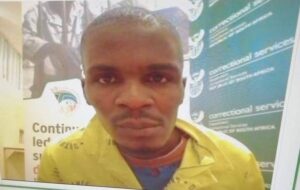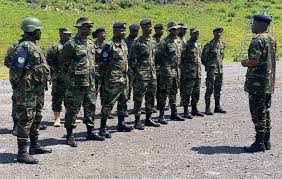Silence Charumbira, Moretlo ‘Moleli, Adv. Mosa Letsie, Adv. Lerato Rabatho
The Lesotho Highlands Water Project (LHWP), one of Africa’s most ambitious infrastructure initiatives, has long been hailed as a beacon of regional cooperation and economic development. By harnessing the water resources of the Lesotho highlands to supply South Africa and generate hydroelectric power for Lesotho, the project promises to transform lives and economies. However, behind the gleaming reservoirs and towering dams lies a story of displacement, broken promises, and unaddressed grievances for the host communities and villagers who have borne the brunt of this development.
Financiers of LHWP II, including the African Development Bank (AfDB), the Development Bank of South Africa (DBSA), the Lesotho and South African governments, the New Development Bank (NBD), the Trans-Caledon Tunnel Authority (TCTA); and other international institutions, all have a critical role to play in ensuring that the lives of those displaced by the project remain dignified. While their primary responsibility may be to provide funding, their moral and ethical obligations extend far beyond writing cheques. They must actively monitor the implementation of the project, ensure that compensation is fair, and hold implementing agencies like the Lesotho Highlands Development Authority (LHDA) accountable for their actions. They must also ensure that communities are conversant of all recourse mechanisms that might be available at their disposal in the event of disputes and or grievances.
Unaddressed grievances and court cases
Despite the promises of improved livelihoods, many affected communities have faced significant hardships and gender discrimination. One glaring case, which was filed in the Constitutional Court in 2023, is that where three Polihali women challenged the LHDA’s compensation practice of issuing compensation in the name of applicants’ husbands only, without their consent in respect of property jointly held by the applicants and their husbands.
Applicants wanted this practice to be reviewed and set aside as irregular and unconstitutional as it was “tantamount to arbitrary and compulsory entry, seizure, taking possession of and/or acquisition of Applicants’ property constitutionally protected under Section 17 (1) of the Constitution of Lesotho 1993, and thus unconstitutional, null and void ab initio for being in violation of Section 4 (1) (m) read with 17 (1) of the Constitution of Lesotho 1993”.
The applicants also wanted the court to declare that the practice was discriminatory and exacerbated “gender inequality and women economic marginalisation in stark violation of Sections 18 (1), (2) & (3) and 19 read with Section 26 (1) of the Constitution”. They also wanted the court to order the LHDA and its CEO “to carry out a comprehensive Gender Impact Assessment” to ensure that the compensation policy adequately addressed “issues of marginalised and vulnerable persons whose property rights were affected by LHWP Phase II currently and in the future”.
To demonstrate the LHDA’s inclement attitude towards the affected communities, in his answering affidavit, LHDA CEO, Tente Tente, posited that there was “no legal obligation and or duty on the LHDA to guard against the issue of errant spouses or husbands”. Although the court did not decide in favour of Applicants, the court acknowledged that Applicants came before court raising an important Constitutional argument but failed to persuade the court to decide in their favour. This is an ample proof of the need for project financiers to impose and enforce regulations that protect communities which host their projects.
There have also been reports of discriminatory compensation, delayed compensation, unfair compensation, unfair labour practices and unequal economic opportunities among others.
Such cases underscore the need for financiers to step in and ensure that the terms of contracts and agreements are honored. Interestingly, one of the financiers, the NDB, says it believes “that gender equality is important to successful and sustainable economic development”.

“At NDB, we believe that gender equality is important to successful and sustainable economic development. We consider it imperative to mainstream gender equality issues in all of our operations,” reads part of its website. However, there seems to be no enforcement efforts to ensure that implementing partners adhere to these “beliefs” and policies.
Another financier of LHWP II, the DBSA, says on its website: “The startling reality is that, despite all efforts to bridge the gender divide, we’re still far off from reaching the goal of a balance between genders in all aspects of life”.
It goes on to says that it is in such cases “where gender mainstreaming becomes a crucial vehicle to accelerate change”.
“Gender mainstreaming is a strategic approach to dismantle gender discrimination and segregation to achieve gender equality commitments by centering women in policy research, planning and monitoring as well as policy dialogues, policy developments, legislation and resources allocation.
“The African context, particularly in the infrastructure development sector, has to be treated as high priority to help accelerate regional and national development goals as the growth of the emerging economies rely heavily on such projects being gainful. We’ve established a gender mainstreaming programme, with the aim to source finance of large scale and small-scale infrastructure, for women-owned or women-led organisations. Our focus areas for this programme include; energy, information communication and technology, transport as well as water and sanitation. We build according to these following four key pillars, which have the primary purpose of streamlining the processes to ensure the quality and success of the programme.”
Again, this is all good but the situation on the ground where the DBSA’s money is being spent in Lesotho must reflect the same pledge. Likewise, the rest of the financiers must be actively involved.
The role of financiers under the spotlight
The role of project financiers behind the LHWP has come under increasing scrutiny. International banks and development agencies, including the AfDB, have a responsibility to ensure that their investments do not come at the expense of local communities. When disputes arise, financiers must have robust mechanisms in place to ensure their resolution and to hold implementing agencies accountable.
Organisations like the Seinoli Legal Centre (SLC) are playing a pivotal role in empowering affected communities. SLC is currently running a project aimed at increasing access to legal remedies and redress for those communities impacted by LHWP Phase II. This project focuses on capacity building of communities to enable them to assert and demand their rights using alternative dispute resolution methods such as engaging LHWP Phase II financiers and their mechanisms. According to SLC, this initiative enables communities to access redress for violations of their rights outside of ordinary local legal systems and enables the financiers of the project to take responsibility over the negative impacts of the projects that they fund.

SLC’s efforts include educating communities about the Independent Recourse Mechanism (IRM) of the AfDB, one of the key financiers of the construction of the Polihali Dam. Between August and November 2024, SLC undertook field trips to Polihali to meet with communities, to educate them about the IRM, and to document outstanding and emerging issues affecting communities. These efforts are part of a broader strategy to increase public awareness and accountability regarding the impact of large infrastructure projects on communities in Lesotho.
Mechanisms for redress and accountability
While organisations like the AfDB have recourse mechanisms, there is still more that can be done by other financiers to improve the protection of host communities. According to reports, NDB does not have an established independent accountability mechanism. Although there have been advocacy efforts pushing for the creation of such a mechanism, affected communities currently lack a formal complaint channel. The same can be said about the DBSA, which has internal social and environmental policies “but no clear path for external complaints”.
The Lesotho and South African governments, who are the major beneficiaries of LHWP through electricity and revenue from wateras well as water transferred to the Gauteng province on the other, find themselves conflicted. Despite being legally obliged to protect the affected communities and ensure fair and transparent implementation of their projects, there has been no demonstration of appetite for such interventions.
A call for proactive outreach by financiers
Financiers must ensure that development projects are community centric from the onset, when policies are developed, it must be a bottom up approach not top down so that the views of communities inform the outcome of the policies that are going to be used on communities.
They must move beyond passive oversight and engage in proactive outreach to affected communities. This includes regular visits to project sites, community consultations, and the establishment of liaison offices to address concerns in real-time. Financiers should also ensure that compensation packages are not only fair but also tailored to the specific needs of affected communities, including livelihood restoration programmes, skills training, and access to social services.
Financiers should support the creation of independent oversight bodies with the power to investigate complaints, mediate disputes, and enforce compliance with project agreements.
More from Africa News 24
LHWP, a story of unresolved legacy disgruntlements
Additionally, financiers should ensure that affected communities have access to legal aid and advocacy support. Many villagers lack the resources and knowledge to navigate complex legal systems, leaving them vulnerable to exploitation. By funding legal assistance programs and community education initiatives, financiers can empower communities to assert their rights effectively.
The growing movement advocating greater transparency and accountability in development financing underscores the importance of holding financiers responsible for the consequences of their investments. By empowering communities to seek recourse and raising awareness about available mechanisms, organisations like SLC are playing a crucial role in ensuring that the voices of the most vulnerable are heard.
Conclusion
The LHWP has the potential to be a model of sustainable development, but only if the rights and dignity of affected communities are prioritised. Financiers must move beyond their traditional roles and take an active interest in the social and environmental impacts of the projects they fund. This means holding implementing agencies accountable, ensuring fair compensation, and engaging directly with communities to address their concerns. Equally, they must also invest resources, time and effort towards educating affected communities, including even before the commencement of projects about recourse mechanisms.
The time for passive oversight is over. Financiers must step up, not only to safeguard their investments but also to uphold the principles of equity and justice that underpin sustainable development. The lives and livelihoods of thousands of people depend on it. By doing so, they can ensure that the LHWP becomes a true testament to the power of development to uplift, rather than displace, the most vulnerable among us.












